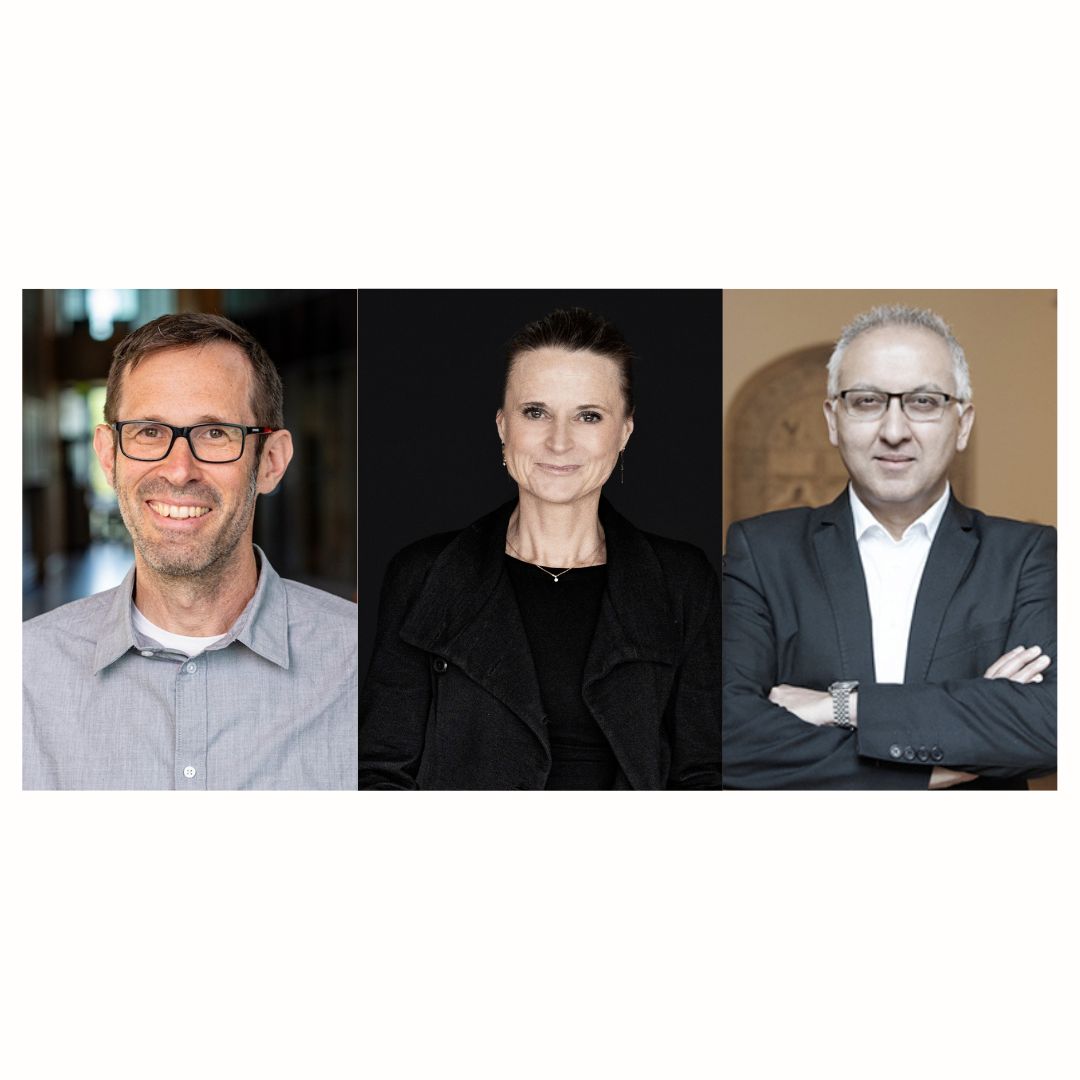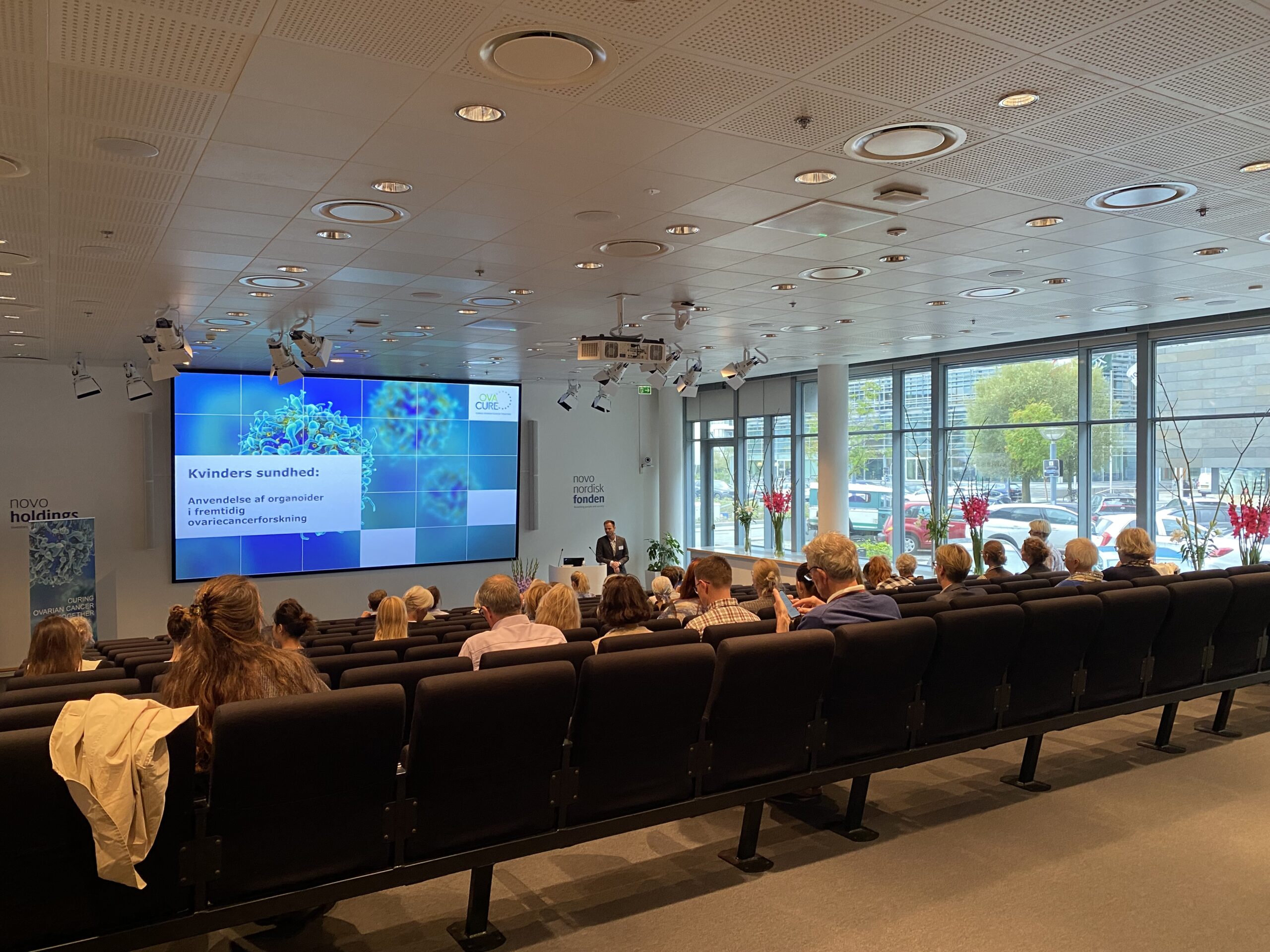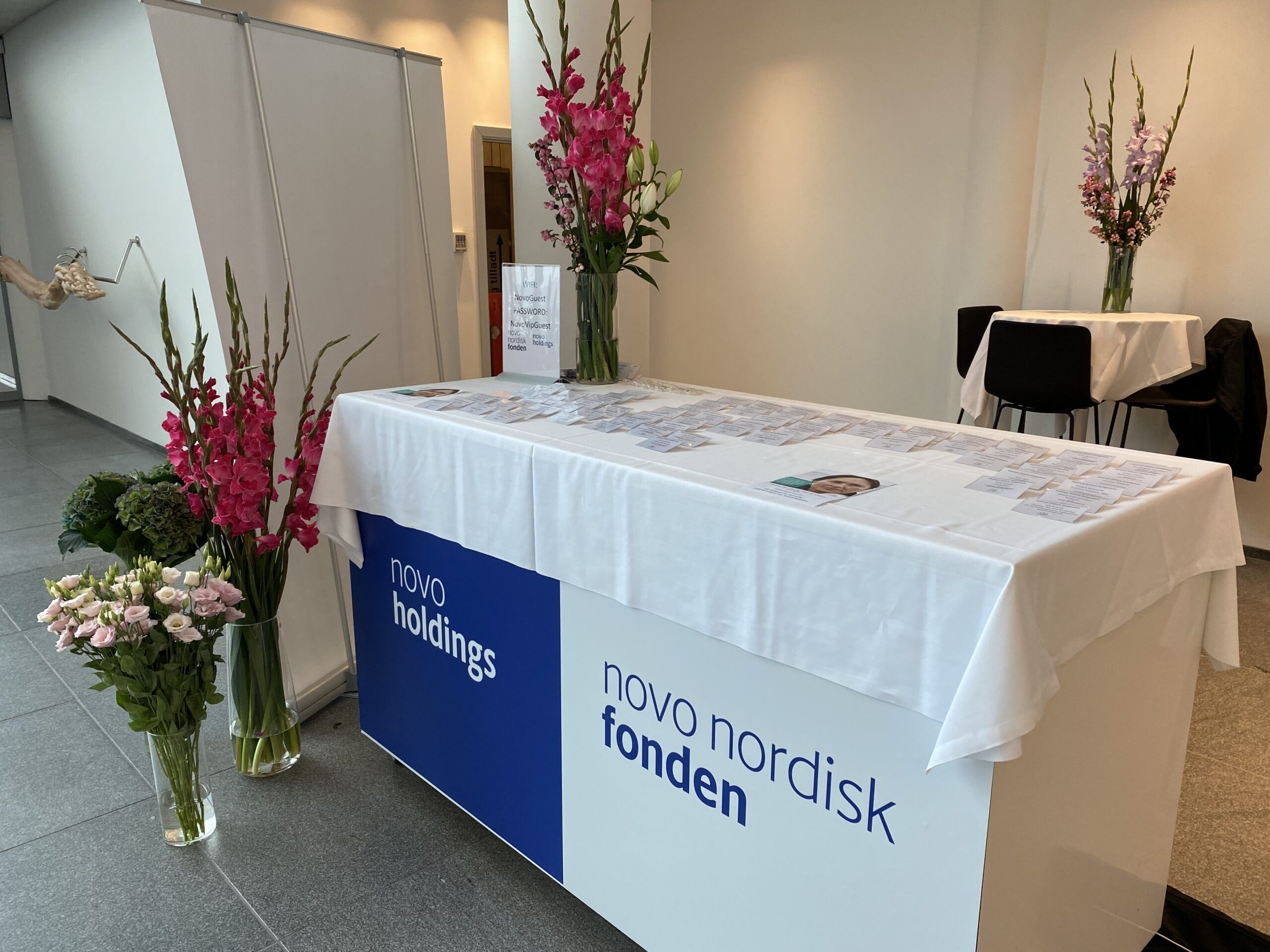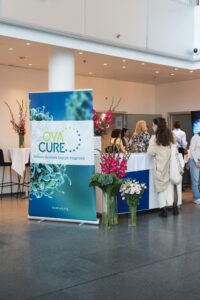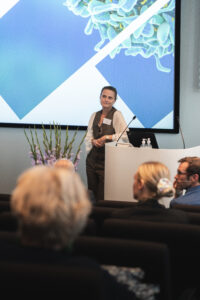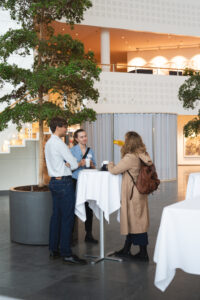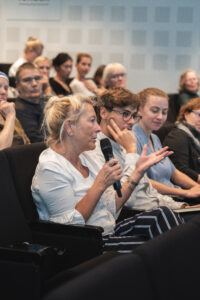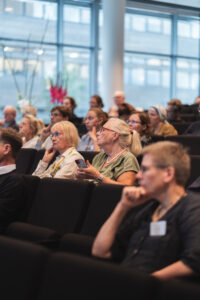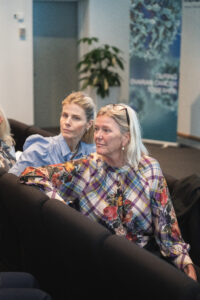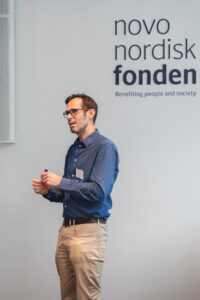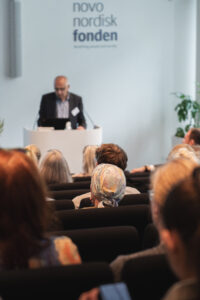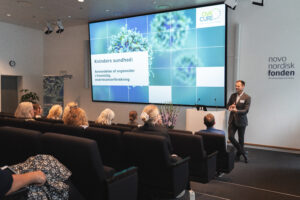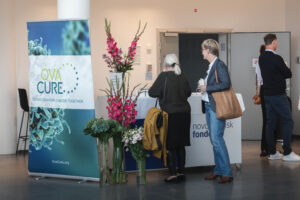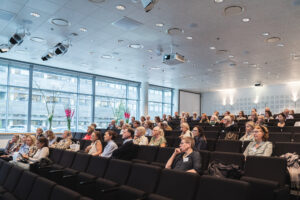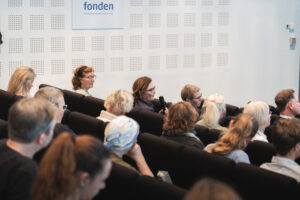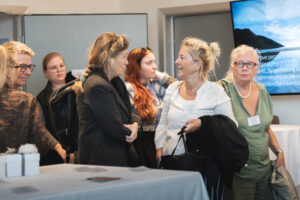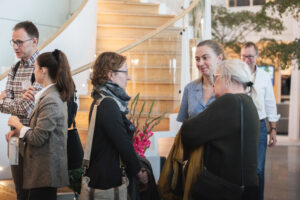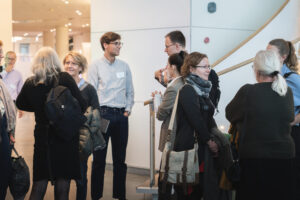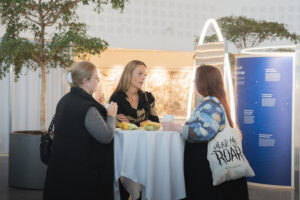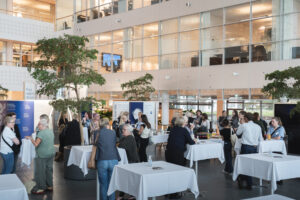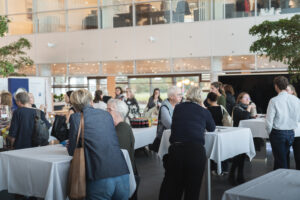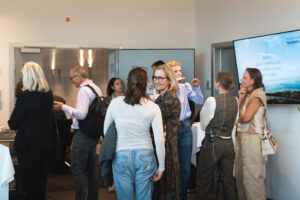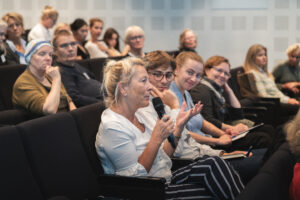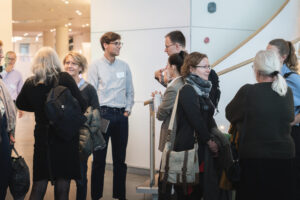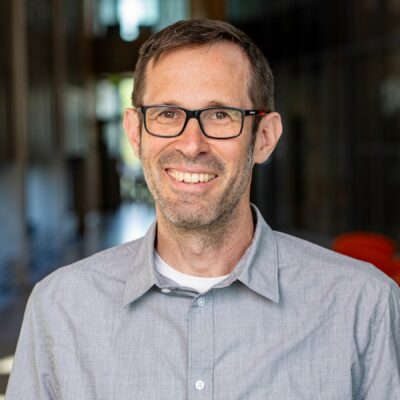Science Symposium
Women’s Health:
The use of Organoids in Future OvarianCancer Research
On 3 October 2023, OvaCure held our Science Symposium, and just like in 2021, it was held at the Novo Nordisk Foundation in Hellerup.
With women’s health and organoids on the agenda, the exciting afternoon gave the participants a sharp insight into why it is so important to prioritize ovarian cancer, as well as how organoid cultures can become an imperative tool for research in the field.
Many female diseases are undermined with phrases such as “that’s just a normal part of a woman’s life”, just as many female diseases are taboo and not seen as research fields worthy of support. At the same time, studies on diseases that can affect both men and women are most often based on men, and this has major consequences for the world’s women. Fortunately, the inequality is being addressed and more people are now focusing on the gender disparity. And focus and investments are absolutely crucial if women’s health is to be prioritized to the same degree as men’s health.
A good example is the great focus on breast cancer, which has led to correspondingly large investments, which in the end has made a huge difference to the survival rate. It is the same path that ovarian cancer also has to go through.
Organoid cultures can be of great help in this regard. Organoids are a revolutionary technology that makes it possible to expand primary tumor tissue into DNA-stable cultures identical to the original tumor tissue, but now up to 1000 times larger in volume. This means that more researchers can gain access to tissue and thus more research can be initiated. The problem is that only very few organoid cultures based on ovarian cancer tumors exist in the world today. In collaboration with Professor Krister Wennerberg, OvaCure is in the process of changing that, however.
Finally, international collaborations are indispensable in the fight against ovarian cancer. Through clinical studies, we learn more about the disease, and the more countries that can cooperate and share results and tissues, the closer we come to fully understanding the serious disease.


